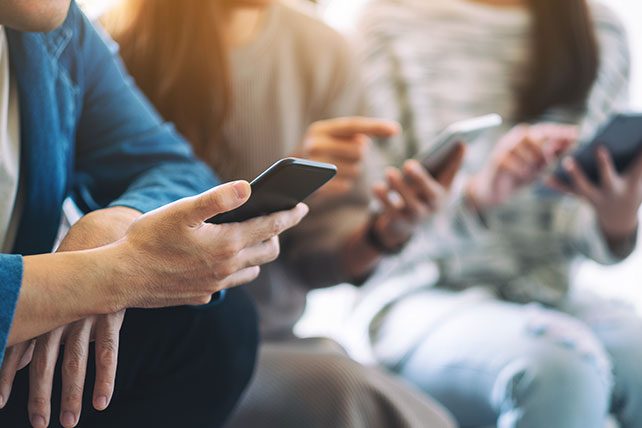Generation Z is spending, on average, nine hours a day in front of one screen or another—meaning TV, videogames, smartphones or tablets. What does that level of online consumption do to individuals and society in general? There are at least five areas where we know the effect is not a positive one.
5 Effects of Online Consumption
1. Online consumption is hurting our kids.
According to a major study of nearly 10,000 teenagers by University College London and Imperial College London, social media damages children’s mental health by “ruining sleep, reducing their exercise levels and exposing them to cyberbullies in their homes.” In fact, “using sites multiple times a day increases the risk of psychological distress by around 40 percent, compared to logging on weekly or less.”
Making matters worse, children’s screen time doubled during the pandemic and, according to researchers from the University of California-San Francisco, hasn’t gone down since. Adding to the concern is that this does not include the time spent on computers for schoolwork as researchers focused exclusively on recreational activities such as social media, texting, internet surfing and watching or streaming movies
2. It’s changing how we view and have sex.
A survey from the U.K.’s The Times finds that pornography is leading to sex where women getting hurt is the new normal, specifically the causing of pain and humiliation. BDSM (bondage and discipline, dominance and submission, sadism and masochism) “is now ordinary.” Slapping, choking, anal intercourse… internet pornography has made those who view it expect it.
For Generation Z, “rough sex” (hair-pulling, biting, slapping, choking and other aggressive behavior) is now the second-most popular porn category searched, and nearly half say online porn is the source of their sex education. It’s also changing our experience with sex, creating distance with our sexual partners—both emotionally and physically. Those who watch porn often find themselves unable to be sexually aroused by their actual (flesh and blood) partner.
Billie Eilish, one of the biggest Gen Z musical stars and the youngest person in history to win all four of the top Grammy awards in the same year in 2020, has spoken freely about her addiction to pornography, starting from age 11, and how it not only gave her nightmares but affected her later dating life.
Speaking on the Howard Stern Show on Sirius XM radio: “I think it really destroyed my brain and I feel incredibly devastated that I was exposed to so much porn.” Twenty-years old at the time of the interview, she added, “The first few times I, you know, had sex, I was not saying no to things that were not good. It was because I thought that’s what I was supposed to be attracted to.”

